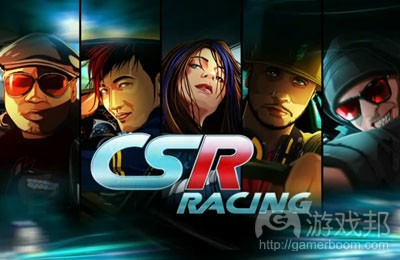免费游戏设计需仔细揣摩玩家心理
作者:Jon Jordan
与所有优秀的讨论一样,我不记得是从哪里开始了。
我所记得的是,自己在谈论着全新受数据驱动的游戏过程——即尝试着为使用应用内部购买的游戏盈利效能划分等级。
我说道:“有趣的是,我所玩过的40多款游戏中,唯一一款会让玩家在前5分钟便遭遇失败的游戏便是《CSR赛车》。”
没错。你会在游戏的前两轮比赛中获胜,但是在接下来便会遭遇失败,而这时候你将被带到车库里,需要使用自己在游戏中的货币去购买汽车。
我考虑了下,并说道:“大多数游戏的教程都是关于获胜以及让玩家感到开心,但是《CSR赛车》却是完全相反,并立刻将玩家带到汽车升级过程中。”
我的密友却反击道:“它远不及《速度与激情6》那般糟糕,在《速度与激情6》中,游戏会在玩家一进到游戏便让他们为汽车消费真钱,但是这却是他们可以在之后的游戏中使用软货币轻松购买到的。”
不可靠的boss
讨论并未终止于此。
我们继续谈论《CSR赛车》:当它在12个月前发行时,我就对其感到不满了,可以说它只是在推广着种种盈利选择,如提供有限的燃料,让那些不想花钱的家不得不为下次升级而进入漫长等待中。
就我个人而言,我对于《CSR赛车》的最大抱怨便是,当我打压了第一个boss时,他便会立刻说自己正在升级汽车,如此我们将不得不再次对抗,从而该boss就会让人信服地赢得比赛。
这时候,我已经玩了很多遍游戏,并且很高兴自己能够到达一个可以停下来的点上了。
至少对于我来说,这是一个再自然不过的转折点。毕竟,游戏的故事是个“靠不住的证据”(基于其所承诺的来看)。
我的朋友回击道:“这便是boss战斗啊。你没玩过《Diddy Kong》吗?”
我没玩过,但是我能理解他的看法。免费游戏的心理学原理与主机游戏其实是一样的,什么情况都有可能发生,特别在boss战斗中。就像在便宜的劣质电影中最后出现的坏人,他们的本性便是不可靠的对手。
但是尽管我能理解这点,但是我却并未认同。免费游戏完全不同于售价50美元的主机游戏,特别是从用户留存上看。
我建议道:“游戏能够基于更好的方式去处理现状。”
“boss的大哥可以出现去挽救自己的尊严。这也将促发另一场更加微妙的战斗。”
“但是如果一个boss需要更厉害的大哥的话,他就没有多了不起。”
最终我们的讨论以叹气告终。“你的问题在于,你已经将《CSR赛车》当成一款免费游戏了。”
我觉得自己虽败犹荣。因为之前我便核对过了,《CSR赛车》的确是一款免费游戏没错。
脑力工作
不管怎样,这次的交流引起了我的思考。
游戏开发者非常擅于制作游戏,在过去几年里,手机游戏开发者也开始精通像分销,市场营销,用户获取,盈利等工作。
但是最大的缺口在于定制用户体验去维系游戏玩法与用户留存。
当然了,有些公司也非常擅于这点。即通过前五分钟的教程让玩家对游戏感兴趣,并理解自己可以花钱(不管是现实中的货币还是游戏货币)去推动进程的快速前进。
我相信这一过程的最终结果便是,我们会看到游戏开发者开始积极地聘请心理专家;即那些在开发过程中将了解玩家行为,并积极改变游戏中某些小元素去完善用户留存,用户粘性以及盈利等内容。
前瞻性思维
之所以需要前瞻性思维是因为当前的产业一直在往后看。
开发者们往往会在游戏发行后再着眼于分析去寻找需要改进的地方。同样地,像A/B测试这样的技巧虽然能够带来很好的结果,但却只能为预置问题提供黑盒解决方法。
由此看来,关于改变第27个关卡的难度的决定可能是因为它太难了,或者开发者不能确定“购买这个”的按键应该是红色还是蓝色这等小事。
开发者在发行游戏前必须拥有专业知识,在情节和游戏玩法中整合微妙的线索,特别是那些可能完善用户留存的内容——这也是当前所有免费开发者所欠缺的。
基于游戏开发者引用复杂的心理技巧(游戏邦注:如交换,强迫,删除奖励等)的频率,我们知道这个产业已经离最终目标不远了,虽然现在还没有一个开发团队中真正出现首席心理官这一职位。
(本文为游戏邦/gamerboom.com编译,拒绝任何不保留版权的转载,如需转载请联系:游戏邦)
Opinion: Why your next hire should be a Chief Psychology Officer
by Jon Jordan
Like all good arguments, I can’t remember how it started.
Like all great arguments, it started in the pub.
(These two statements may be related.)
What I can remember is talking about my new data-driven process – an attempt to rank the monetisation efficiencies of games that use in-app purchases.
“What’s interesting is that of the 40 or so games I’ve played, the only one to actively fail you within the first five minutes was CSR Racing,” I commented.
It’s true. You win the first two races in the game, then lose the next, hence being taken into the garage where you get to buy a car with the in-game (soft) currency you’ve provided with.
“Most tutorials are all about winning and making the player feel happy, but CSR Racing does the opposite and immediately gets you into the process of upgrading your car,” I pondered.
“It’s not as bad as Fast & Furious 6 where you’re immediately given a time-dependent offer to spend real cash on a car you can easily buy with soft currency a couple of hours later,” countered my chum.
An unreliable boss
The argument didn’t stop there, however.
We continued to talk CSR Racing: a game I was critical of when it launched 12 months ago, but one that was merely in the vanguard of popularising monetisation options such as limited fuel slots, having to wait for part upgrades to arrive if they were being ‘importing’ etc.
A good psychological trick?
Personally, though, my main beef with CSR Racing was that when I beat the first boss, he immediately told me he was upgrading his car and so we had to race again, the boss going on to win convincingly.
At this point, I’d played enough and was fairly happy to have come to a point in the game where I felt I could stop.
For me at least, this was a natural break point. After all, the game narrative was clearly an ‘unreliable witness’ in terms of what it was promising.
A bad psychological trick?
My friend exploded in glee. “That’s what boss battle are all about,” he said. “Have you never played Diddy Kong [Racing]?”
I haven’t but I understood his point. The psychology of free-to-play games is the same as console classics, where anything can happen, especially in boss battle. Like the final baddy in a b-movie, by their very nature they are unreliable opponents.
But while I understand the point, I totally disagree. Free-to-play games are entirely different to $50 console games, especially in terms of retention.
“The game could have handled the situation in a better way,” I suggested.
“The boss’ big brother could have turned up to rescue his pride. That would have triggered another race but in a more nuanced manner.”
“Not much of a boss if he needs a big brother,” was the reply.
The argument eventually fizzled out with the exclamation, “Your problem is you’ve approached it [CSR Racing] like a free-to-play game.”
I felt I’d earned a moral victory. Last time I checked, CSR Racing was a free-to-play game.
Brain work
Nevertheless, the exchange has got me thinking.
Game developers are very good at making games, and over the past couple of years, mobile game developers have got good at things like distribution, marketing, user acquisition and monetisation – especially monetisation.
We’re good at retailing; a time-limited offer in Hay Day
The big gap, however, is tailoring the user experience so it bridges gameplay and retention.
Of course, some companies are very good at this. Most first five minute tutorials now gets players enjoying the game while understanding they can spend currency (whether soft or hard) to progress quicker.
And I believe that the end result of this process is we’ll see game developers actively hiring psychologists; that is people who during development will study the behaviour of players and actively change many small elements of the game to improve retention, engagement and – yes – monetisation.
Forward-thinking
This matter because, at present, the industry is doing it backwards.
Post-launch, it’s looking at analytics to find obvious pinch points in the data. Similarly, techniques such as A/B testing give good results but only provide black box solution to pre-set problems.
In this context, changing the difficulty of level 27 because it’s too hard or working out if a ‘Buy This’ button should be red or blue is small beer.
Developers need to have expertise on-hand before a game launches, building the subtle cues into plot and gameplay, particularly those that will improve retention – presently the biggest failing for all free-to-play developers.
Because the frequency that more sophisticated psychological techniques are being cited by game developers – things like reciprocation, coercion, reward removal – suggests the industry is already halfway there, even if there isn’t anyone with the legend Chief Psychology Officer on their business card just yet.(source:pocketgamer)








































 闽公网安备35020302001549号
闽公网安备35020302001549号